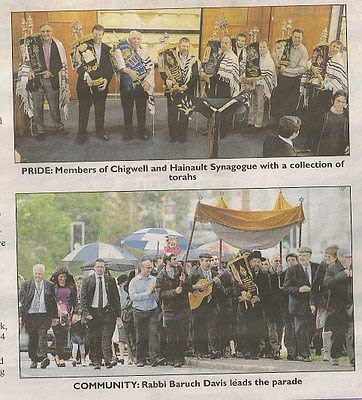We may never discover how the Universe ticks
Our brains are limited. It may take a posthuman species to work out the big questions
Our brains are limited. It may take a posthuman species to work out the big questions
These are the headline and strapline to a column in today's Times. The column is written by Professor Martin Rees, President of the Royal Society and Astronomer Royal Professor Rees is the 2010 Reith Lecturer. The subject of his lectures will be "Scientific Horizons", and his article in today's Times trails that theme.
Science is a global culture ... It’s a cultural deprivation not to appreciate the panorama offered by modern cosmology and Darwinian evolution — the chain of emergent complexity leading from some still-mysterious beginning to atoms, stars and planets. And how, on our planet, life emerged and evolved into a biosphere containing creatures with brains able to ponder their origins. This common understanding should transcend all national differences — and all faiths too.I do rather like this observation. For the person of religious faith, the failure to appreciate the picture of the world offered by modern science can only leave their faith lacking in the richness that it should have. An opposition to an evolutionary perspective cannot, in my view, be considered as a matter arising from Christian belief. Fundamentalism, or more precisely, a form of fideism on this point does an injustice to both science and faith. Rather, this field of science is a field for dialogue between the secular world and the world of religious belief.
One might be a bit cautious about Professor Rees' last sentence and want to clarify that the common understanding he suggests should be shared with all nations and religions rather than it being a case of an exclusively scientific understanding taking dominance over nations and religions.
...Einstein would have been specially gratified at how our cosmic horizons have expanded. Our Sun is one of a hundred billion stars in our galaxy, which is itself one of many billion of galaxies in range of our telescopes. And there is firm evidence that these all emerged from a hot dense “beginning” nearly 14 billion years ago.I found it striking that Professor Rees would cite much the same aspects of the universe revealed to us by science as those cited by Pope Benedict XVI when speaking about the Trinity in June 2009.
Other sciences have advanced apace, disclosing the nature of atoms, genes and cells. Last year, we celebrated Charles Darwin’s anniversary. His pioneering insights are pivotal to our understanding of all life on Earth, and the vulnerability of our environment to human actions.
Oh, and there are one or two irreverent/amusing comments to the online version of Professor Rees' article!
The first of the Professor's Reith Lectures is to be broadcast tomorrow and I expect that, as in all recent years, the text and an audio recording of the lectures will appear on the Radio 4 page dedicated to the lectures.












